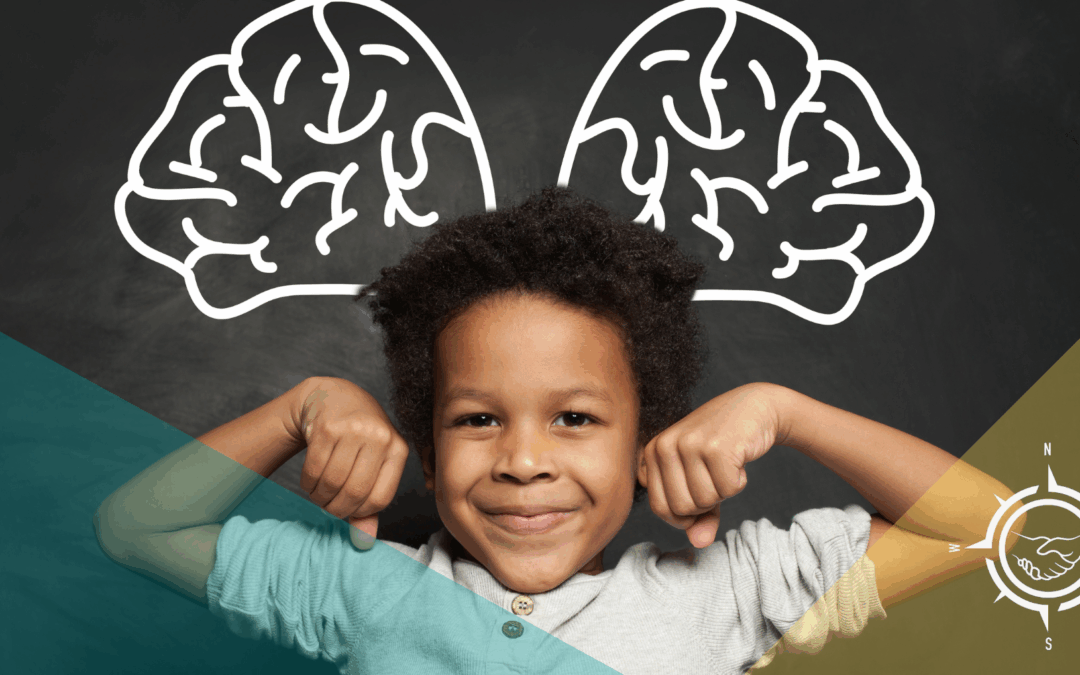Understanding Trauma’s Impact on Brain and Behavioral Development
When children routinely misbehave, they are often labeled as a “bad” kid. But if your child has experienced trauma, it’s not that they are a bad kid–they actually have a brain injury. Trauma can trigger lasting changes in the brain’s structure and function, particularly in areas related to emotion regulation, memory, and executive functions.
In this article, we are going to dig deeper into these effects trauma has on the brain and your child’s development.
Trauma Creates a Real Brain Injury
When trauma changes the brain’s structure and function, this can lead to certain behaviors that are often labeled as “bad” behaviors. Particularly, trauma leads to lasting effects such as hypervigilance (when your child is always on the lookout for danger), difficulties with learning and concentration, problems with forming secure attachments, and a heightened risk for conditions such as depression or PTSD. Trauma can also lead to behavioral changes, like temper tantrums, sleep disturbances, social withdrawal, difficulties controlling emotions, and difficulties forming positive social relationships.
Let’s further break this down.
Brain and Neurobiological Effects
- Structural and Functional Changes: Trauma, especially early and chronic (repeated) exposure, can lead to changes in the hippocampus (memory), prefrontal cortex (executive function), and the amygdala (fear and emotion). All of this can impair normal functioning.
- Stress Response System: Trauma changes how the body handles stress, causing their stress response system (fight or flight) to always be activated, leading to a constant state of stress and fear that further interferes with brain development. This could lead to your child to not act their age or to seem behind in development.
- Threat and Reward Systems: Since the brain’s threat detection system is always on, it becomes overly sensitive (hypervigilance), while the reward system, which is crucial for motivation and learning, can become oppressed/negatively affected.
Behavioral and Emotional Effects
- Emotional Dysregulation: Because the amygdala, which controls fear and emotion, is changed by trauma, children with trauma often struggle to control intense emotions, leading to irritability or even anger.
- Attachment Issues: Trauma is caused by broken trust with a caregiver, and this can lead to your child feeling afraid to build positive relationships with other caregivers in their lives. This leads to difficulty forming positive, healthy relationships and learning to rely on others for support.
- Behavioral Problems: Because your child has difficulty regulating emotions, it can lead to behavioral issues and unwanted behaviors, such as anger, temper tantrums, clinginess, social withdrawal, and even sleep or toileting issues.
Cognitive and Learning Effects
- Executive Function Deficits: Since trauma can impair the prefrontal cortex, this can lead to problems with planning, organization, problem-solving, and concentration. Many of these skills are needed especially for school and learning, but are also needed in other areas of life.
- Memory and Learning Difficulties: Not only can there be issues with concentration, but the chronic stress that trauma induces in the body can also lead to memory deficits and difficulty with acquiring new information. This is because the brain focuses resources on survival, rather than learning.
Long-Term Risks
If trauma is left untreated, it can lead to long-term chronic issues. These can include:
- PTSD
- Depression
- Anxiety
- Substance abuse
- Cardiovascular Disease (caused by chronic stress)
- Metabolic disorders such as diabetes
- Chronic lung issues
- Chronic pain
- Struggles with intimacy
- Difficulty maintaining stable and healthy relationships
Hope in Healing
The good news is that children’s brains are resilient! The human brain is constantly growing and making new connections up through the age of 25. With the right treatments and brain-based therapies, your child can begin to heal from trauma. Want to learn more about how you can help guide your child through trauma and manage the complexities of challenging their behavior? Learn more about Positive Safe Relationships, a type of parenting that can help your child heal from trauma!


